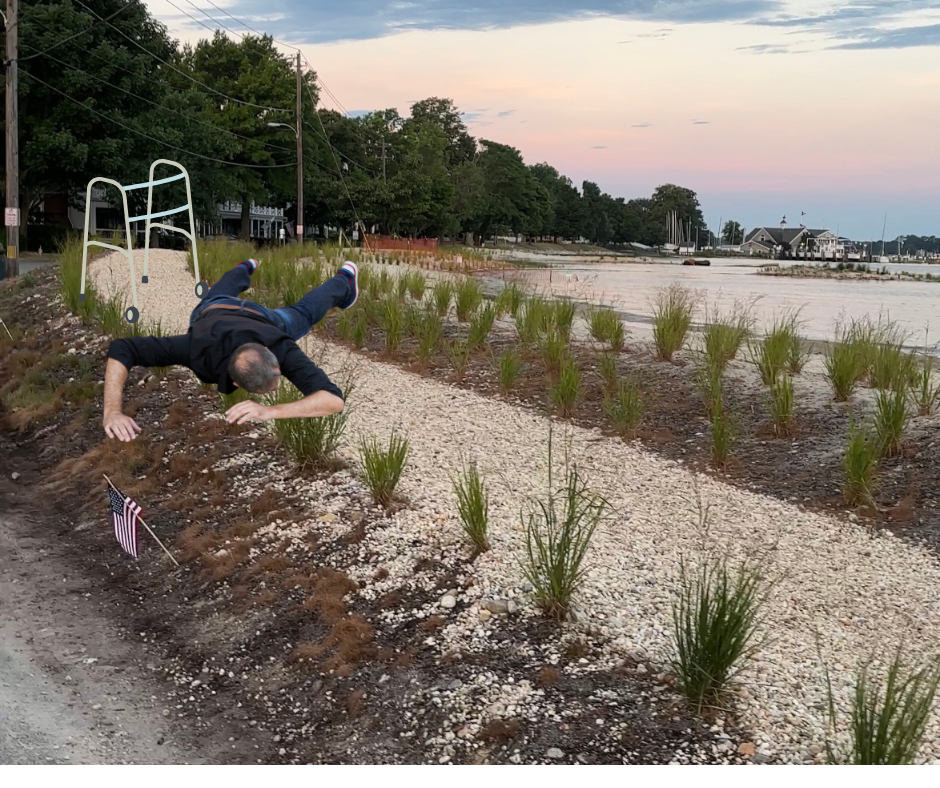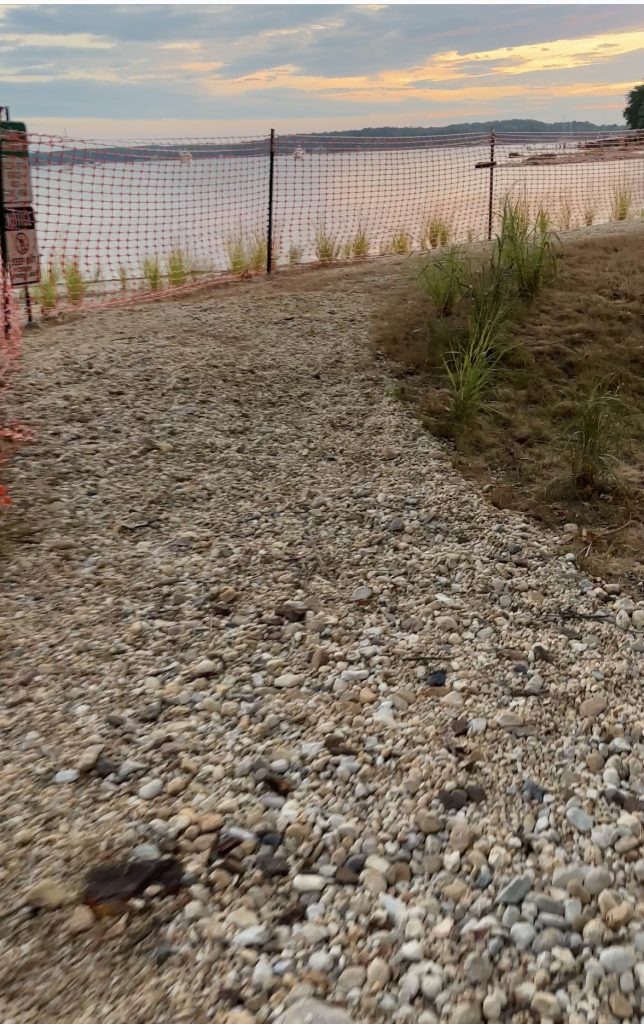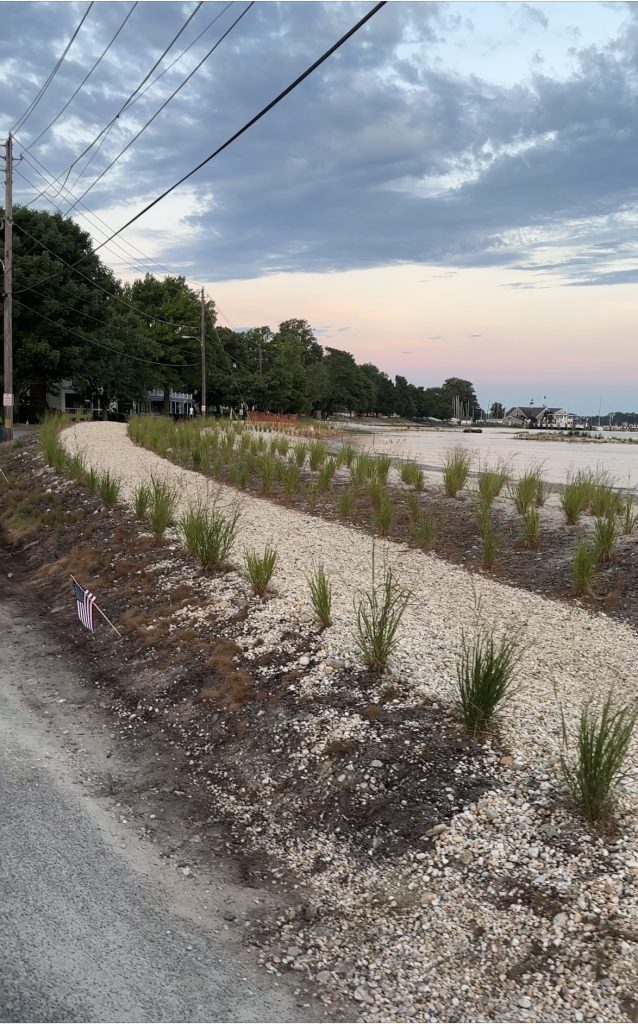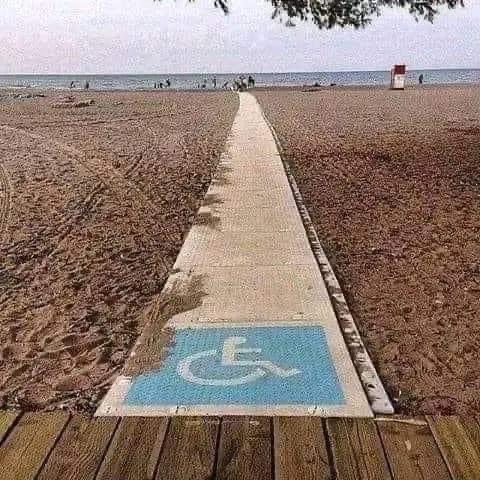
Please Follow us on Gab, Minds, Telegram, Rumble, GETTR, Truth Social, Twitter
The answer to the question was unexpected. In fact, it shocked me.
As a lifetime educator, I had been taught that disabled people have rights to enjoy the same access to public and private venues as everyone else and that we should work very hard to help them in that cause.
The Oxford, Maryland Strand Beach as it used to be, was more navigable for disabled folks. There was no huge berm, no rocky paths, etc. Now, with the controversial "Shoreline" Restoration, all these exist. And they block access to those of us who need wheelchairs, walkers, canes etc.
So, at a recent town meeting when a citizen asked about access for the disabled at the "restored" beach, the answer from the town was shocking. Cheryl Lewis, who was the Town Manager at the time and who oversaw the entire project from inception, explained that there wasn't money for that. This is not the first time we have heard this. The contractor, Underwood and Associates, said the same thing. He implied that it would be nice to accommodate the disabled but there just wasn't enough money in the grant of approximately $2 million dollars.
In a meeting on July 9th, Town Lawyer Lindsey Ryan was interested in helping to solve the problem and disclosed that the town was looking into the issue.
It's strange that the town administration felt the disabled ramp was an expensive "add on" because when the work on the Strand was being designed and the project was sold to the town, the plans included two ramps. Here are those plans:
And, the project was not approved to be completed WITHOUT a ramp:
While the document addresses other areas, it also highlights this statement in the project description: Construct a 72 foot long by 4-foot-wide timber pier with a 5 foot by 5-foot mid-walkway platform over the proposed march vegetation extending 40 feet channel ward of the mean high water.
Do the pictures below look like what was described?



Not enough money out of an approximately TWO MILLION DOLLAR grant so that disabled people can go to the beach on a hot summer's day?
They keep telling us "The project is not finished yet." Question is, when will it be finished? When will the ramp be completed? No one has been seen working on the shoreline for months. Will the disabled have a chance to get on the Strand Beach before it's too cold?
Or is that just too expensive? Last time I checked, the Federal and State Government doesn't excuse the obligation to the disabled because it costs money. And, from what we see, the disabled access was part of the grant for this project. Besides, what will it cost the town when they and the contractor are cited with a violation of the ADA? Or, better yet, when they get sued.
At the very least, they could do something like this:

Not pretty, I know, but considering that the town was willing to destroy the iconic look of the Strand to complete this project, do they really think handicapped access is too ugly?
That's an ugly attitude.
If you have questions or would like to encourage the town to do something about this, please contact our town government:
Contact | Town Of Oxford, Maryland (oxfordmd.net)
Include the Commissioners separately and together as well as our town lawyer, Lindsey Ryan. All of their individual emails are here:
Ask them why the town is discriminating against the disabled and preventing them from using a public beach.
You can also contact the head of the project from Underwood and Associates and remind him of the plans his company provided:

Partner
Here is a link to the American with Disabilities Act page from the government:
Guide to Disability Rights Laws | ADA.gov
The passage below states clearly that the case for why we need disabled access to the Strand Beach:
Title II covers all activities of State and local governments regardless of the government entity’s size or receipt of Federal funding. Title II requires that State and local governments give people with disabilities an equal opportunity to benefit from all of their programs, services, and activities (e.g. public education, employment, transportation, recreation, health care, social services, courts, voting, and town meetings).
Even if the Federal Government didn't require this, shouldn't we?
DISCLAIMER: The writer has a disabled family member.